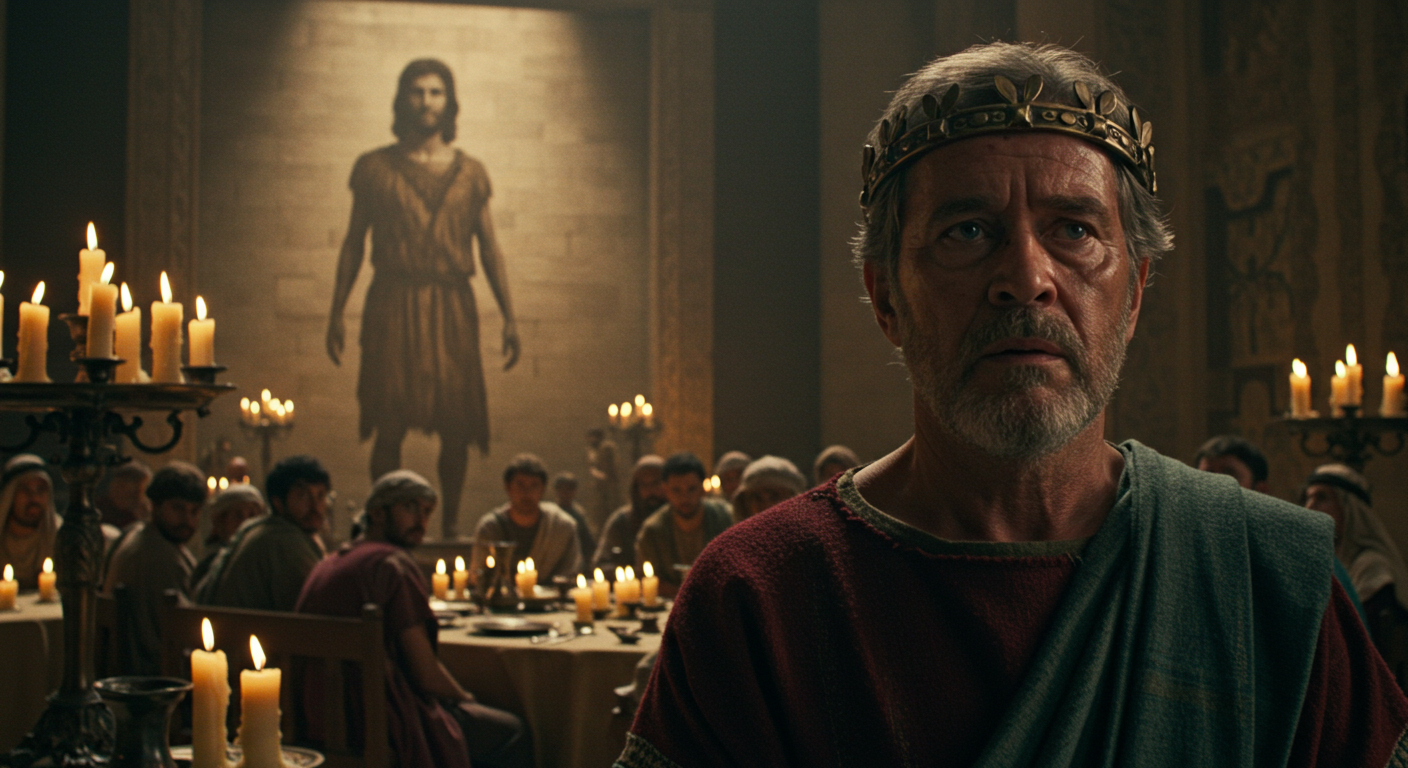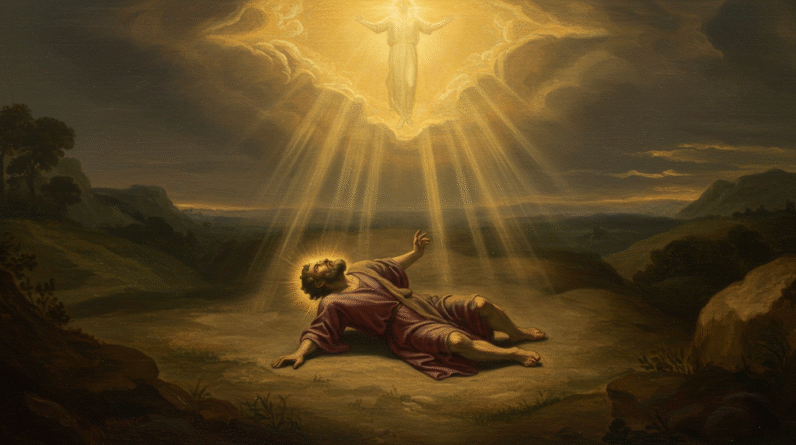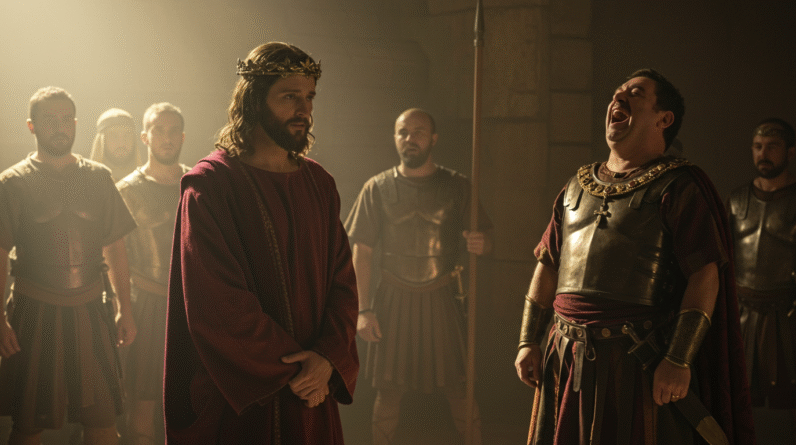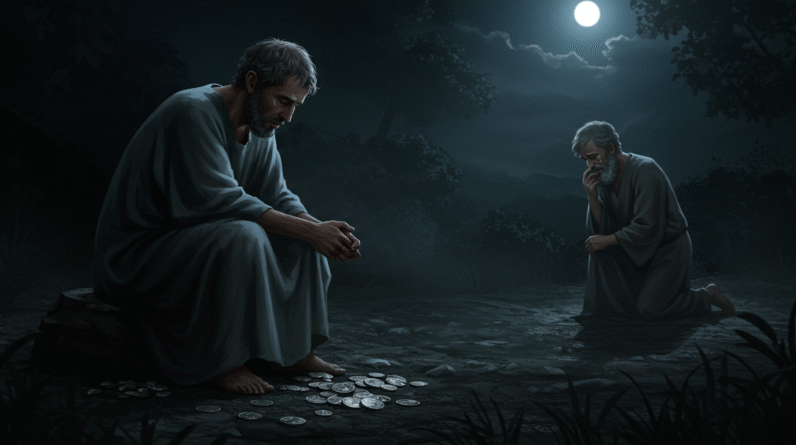Herod Antipas and John the Baptist: The Deadly Dance of Pride
In the grand tapestry of biblical history, few narratives blend intrigue, moral conflict, and human fallibility as compellingly as the tale of Herod Antipas and John the Baptist. This story, which unfolds like a dramatic play, provides an invaluable lens through which to explore the complexities of pride, peer pressure, and moral failure. Join me as we journey through this compelling narrative, where regal excess meets the simplicity of prophetic truth.
Pride and Power: The Rule of Herod Antipas
Herod Antipas was the son of Herod the Great and ruled as the tetrarch of Galilee and Perea. His leadership was marked by ambition and a deep-seated desire for power. Unlike his father, who is remembered for his unyielding cruelty, Herod Antipas’s leadership was more nuanced, though no less problematic. His rule was underpinned by a need to assert his authority, create a legacy, and maintain his standing amongst the Roman elite.
Antipas’s pride was not just a personal vice but a political tool, allowing him to navigate the treacherous waters of Roman-occupied Judea. Maintaining his power required a careful balance of appeasing Rome while holding authority over the local Jewish population. This delicate dance with pride set the stage for a series of moral missteps that would ultimately embroil him in one of history’s most tragic and legendary events.
The Voice Crying Out: John the Baptist
In stark contrast to the riches and opulence of Herod’s court stood John the Baptist. Known for his austere lifestyle and fiery preaching, John was a revered prophet whose message resonated powerfully with the people of Judea. His call to repentance and baptism drew large crowds, making him a figure of significant influence and a beacon of moral clarity.
John’s uncompromising stance on righteousness and his fearless critique of immorality placed him in direct opposition to Herod Antipas. He was not swayed by power or position, speaking out against the sinful actions of the leaders of his day, including Herod himself. John’s resolute commitment to truth made him an unlikely yet formidable adversary in what would become a deadly dance of ideals.
The Scandalous Affair: Herodias
The intertwining stories of Herod Antipas and John the Baptist dramatically pivot on Herod’s scandalous affair with Herodias. Herodias, who was the wife of Herod’s half-brother Philip, left her husband to marry Herod. This union was not only morally questionable but also directly condemned by John the Baptist, who publicly rebuked the tetrarch for his actions.
Herodias’s character adds another layer of complexity to the narrative. Driven by personal ambition and a desire to maintain her status, she became a pivotal player in the events that followed. Herod’s entanglement with Herodias was more than just a personal failing; it was a public scandal that encapsulated the depths of his pride and disregard for righteous conduct.
The Fateful Celebration: Herod’s Birthday Banquet
The stage for one of the most infamous events in biblical history was set during a spectacular birthday banquet for Herod Antipas. As he celebrated among nobles and courtiers, Herodias’s daughter, traditionally known as Salome, performed a dance that enthralled Herod and his guests. In the heat of the moment, swept away by pride and the desire to please, Herod made a rash vow.
He promised to give her whatever she wished, up to half his kingdom, a reckless pledge that would soon entangle him in a moral quandary. This impulsive decision underscores how pride can blur judgment and lead one into precarious territory.
The Deadly Request: John’s Beheading
Salome, prompted by her mother, Herodias, asked for the head of John the Baptist on a platter. This shocking request forced Herod Antipas into a corner. Despite his respect for John and his awareness of John’s integrity, Herod felt compelled to fulfill his promise due to the need to save face before his guests.
Herod’s decision to execute John was a moment of profound moral failure. It was driven by pride and a misguided adherence to a reckless vow. His inability to resist peer pressure and to act against the injustice reveals the corruptive power of pride when left unchecked. The prophet’s beheading was not just a physical act of violence but a symbolic death triggered by the moral collapse of a leader unable to put righteousness above ego.

Pride and Peer Pressure: Herod’s Downfall
Herod Antipas’s account is a poignant study of how pride and peer pressure can combine to tragic effect. His failure to stand against the crowd, even when aware of the right course of action, illustrates a universal human struggle. The influence of those around him, combined with his need to protect his fragile pride, brought about irreversible consequences.
Though surrounded by people and power, Herod found himself isolated in a prison of his own making. The very pride that fueled his reign became the vice that led him to moral ruin. His story serves as a cautionary tale about the dangers of allowing one’s ego to dictate decisions, underscoring the importance of integrity over reputation and justice over injustice.
The Ripple Effects of Herod’s Decisions
The aftermath of John’s execution was felt far beyond the palace walls. It sent shockwaves through Judea, affecting the social, political, and spiritual landscapes of the time. John the Baptist’s death silenced a powerful voice calling for repentance, but his legacy continued to inspire and convict many, laying the groundwork for the ministry of Jesus.
Herod Antipas’s actions not only shamed his rule but also set a precedent of tyrannical fear over truth. His inability to correct his course deepened the divide between the state and the people, fostering a climate of distrust and dissatisfaction. The chain of events ultimately underscored the perilous path of leadership without a moral foundation.
John the Baptist’s Enduring Legacy
Despite the tragic end, John the Baptist’s legacy endures as a testament to the power of conviction and moral certainty. His fearless proclamation of truth and commitment to justice preserve his place as a pivotal and inspiring figure in religious history.
John’s life and martyrdom continue to be a source of reflection on the costs of integrity and the sacrifices made in the pursuit of higher ideals. His story provides hope and guidance for those striving to live with purpose, serving as a reminder that even amidst great trial, truth and righteousness eventually prevail.
A Cautionary Tale for Modern Times
The deadly dance of pride between Herod Antipas and John the Baptist offers timeless lessons relevant to our contemporary world. The narrative challenges us to consider how pride and peer pressure can compromise our values, urging a conscientious evaluation of our own moral decisions.
As we navigate our spheres of influence, we are reminded of the importance of standing firm in our convictions, even when faced with opposition. The stories of Herod and John call into question how we balance integrity with societal expectations, illustrating that the battle against ego is as relevant now as ever.
Conclusion
The story of Herod Antipas and John the Baptist is one of stark contrasts—between power and humility, pride and righteousness, fear and conviction. This biblical saga serves as both a historical account and a moral allegory, leaving us to ponder the roles we play in the unfolding drama of our lives.
As you walk away from this narrative, consider how the tension between external pressures and internal truths guides your own choices. Encountering ancient tales anew encourages us to reflect on our paths and decide which voices—pride or principle—we let lead us.
Explore More
For further reading and encouragement, check out these posts:
👉 7 Bible Verses About Faith in Hard Times
👉 Job’s Faith: What We Can Learn From His Trials
👉 How To Trust God When Everything Falls Apart
👉 Why God Allows Suffering – A Biblical Perspective
👉 Faith Over Fear: How To Stand Strong In Uncertain Seasons
👉 How To Encourage Someone Struggling With Their Faith
👉 5 Prayers for Strength When You’re Feeling Weak

📘 Jesus and the Woman Caught in Adultery – Grace and Mercy Over Judgement
A powerful retelling of John 8:1-11. This book brings to life the depth of forgiveness, mercy, and God’s unwavering love.
👉 Check it now on Amazon
As a ClickBank Affiliate, I earn from qualifying purchases.
Acknowledgment: All Bible verses referenced in this article were accessed via Bible Gateway (or Bible Hub).
“Want to explore more? Check out our latest post on Why Jesus? and discover the life-changing truth of the Gospel!”








